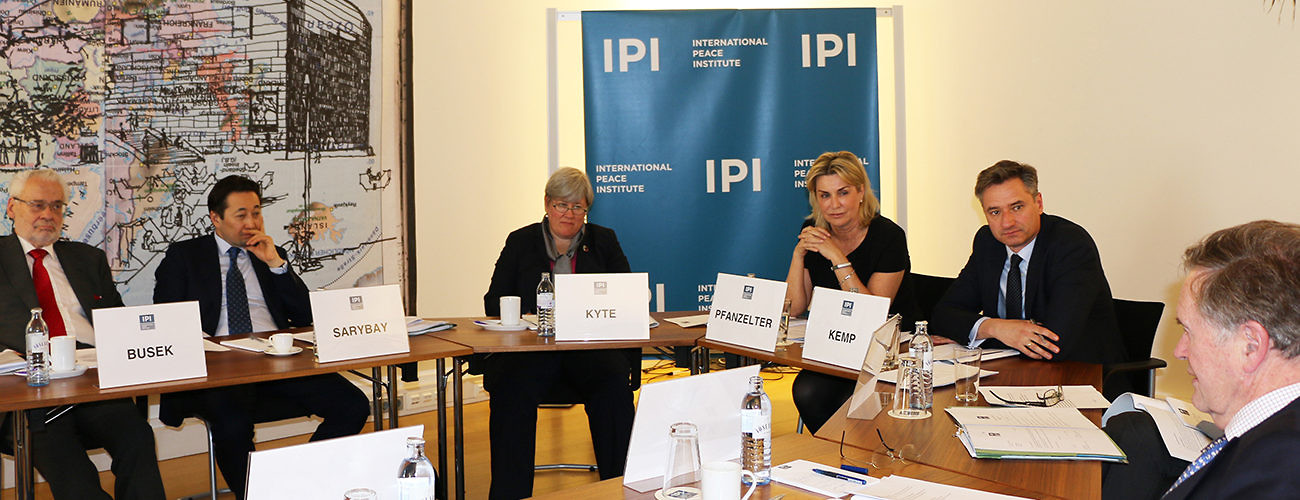On April 29th, the IPI Vienna Advisory Council (VAC) gathered for its fifth meeting since its creation in 2011. The Council provides support to IPI Vienna through advice with respect to the office’s research, analysis, policy development, outreach, convening, and other programmatic activities.
Andrea Pfanzelter, Senior Director of IPI Vienna, welcomed the distinguished personalities and introduced the new members of the Council:
- Rachel Kyte, Special Representative of the Secretary-General and Chief Executive Officer, Sustainable Energy for All
- Ambassador Kairat Sarybay, Ambassador and Permanent Representative of Kazakhstan to Austria
- Ambassador Claude Wild, Permanent Representative of Switzerland to Austria
New VAC members who were not able to participate in the meeting are:
- Ambassador Helen Eduards, Ambassador and Permanent Representative of Sweden to Austria
- Liselotte Plesner, Ambassador and Permanent Representative of Denmark to Austria
- Caspar Einem, President of the Austrian Institute for International Affairs
After introducing IPI staff, Mrs. Pfanzelter briefed Council members on IPI Vienna’s 2015 achievements, ranging from its long-lasting multilateral cooperations to providing expert advice to organizations and events and organizing high-level meetings on urgent topics such as preparing for pandemics and looking for new approaches to frozen conflicts in Europe.
As 2015 also marked the 70th anniversary of the UN, the 45th annual Vienna Seminar focused on UN related challenges. Another major international conference, the Salzburg Forum, took place for the second time and already established itself as a prominent event. In addition, the Vienna office further contributed to IPI’s role as Secretariat for the Independent Commission on Multilateralism (ICM).
The wide range of ongoing projects in 2016 at IPI Vienna–inter alia falling under the headings of multilateral cooperation, conflict prevention and peace operations, transnational challenges to peace and security, humanitarian affairs as well as governance and sustainable development–was explained by Walter Kemp, IPI Senior Vice President and Chief Operating Officer.
Mr. Kemp also highlighted the recently created Global Trends Unit, which will draw on the resources of IPI’s Data Lab and other open sources to provide information on global trends affecting risk and resilience.
The presentations were followed by a discussion, during which the Council members shared their common concern about the danger of political extremism as well as the importance of the nuclear non-proliferation treaty. Moreover, participants discussed the role of mass media and how crucial the use of language in politics is. It was advised that besides experts, academics and diplomats, IPI should consider to involve writers into discussions as they could provide significant input and opinions on topics related to international peace and security from a different angle. The Council members also highlighted the importance of youth participation in decision making forums and discussions.
Talking about future perspectives, the Council members discussed the outcome of a new Austrian law which provides a new kind of status for organizations located in Austria, called the “Quasi-Internationale Organisation.” The new status is of particular interest to IPI Vienna and Sustainable Energy for All.








